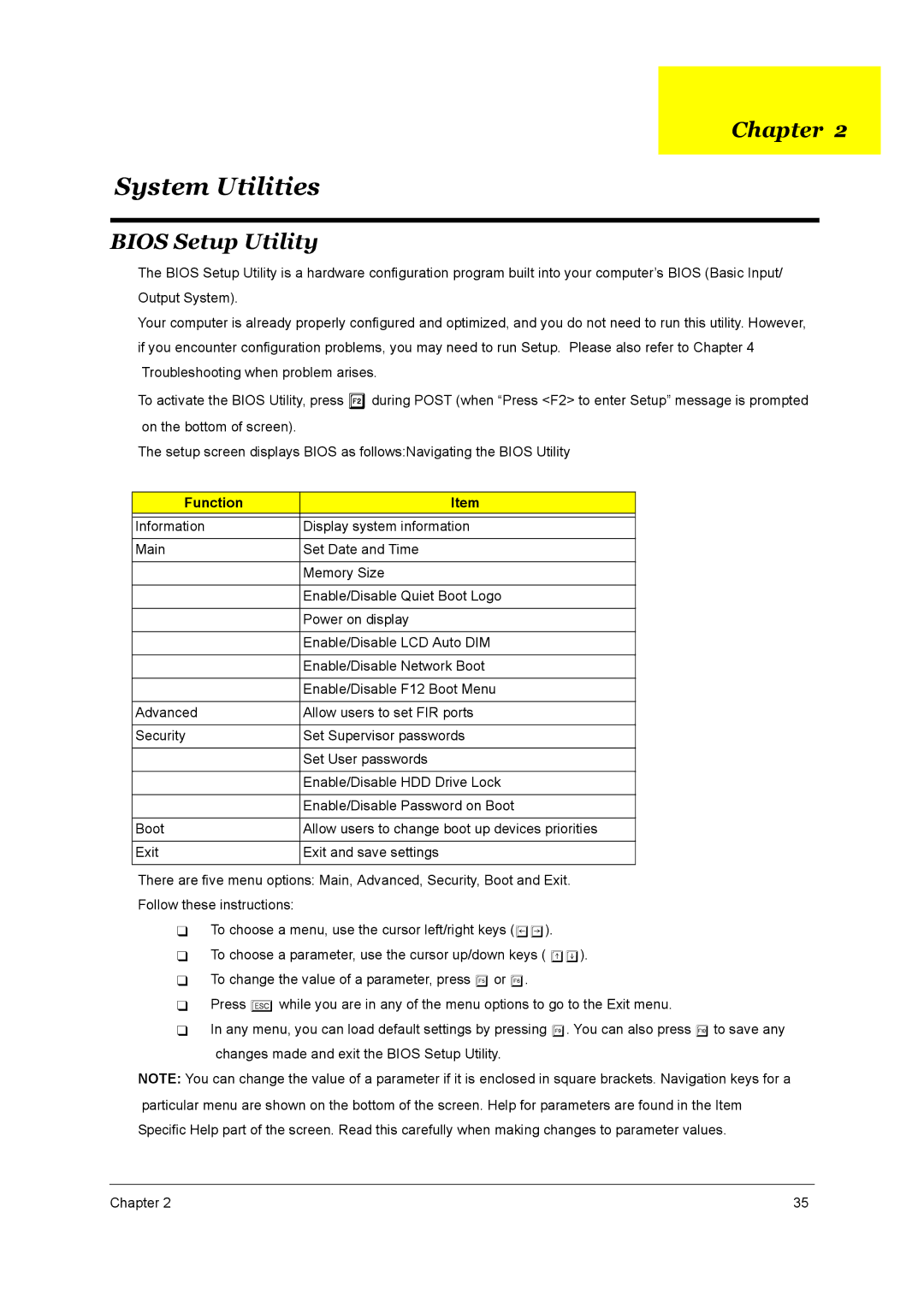
Chapter 2
System Utilities
BIOS Setup Utility
The BIOS Setup Utility is a hardware configuration program built into your computer’s BIOS (Basic Input/ Output System).
Your computer is already properly configured and optimized, and you do not need to run this utility. However, if you encounter configuration problems, you may need to run Setup. Please also refer to Chapter 4 Troubleshooting when problem arises.
To activate the BIOS Utility, press mduring POST (when “Press <F2> to enter Setup” message is prompted on the bottom of screen).
The setup screen displays BIOS as follows:Navigating the BIOS Utility
Function | Item |
|
|
Information | Display system information |
|
|
Main | Set Date and Time |
|
|
| Memory Size |
|
|
| Enable/Disable Quiet Boot Logo |
|
|
| Power on display |
|
|
| Enable/Disable LCD Auto DIM |
|
|
| Enable/Disable Network Boot |
|
|
| Enable/Disable F12 Boot Menu |
|
|
Advanced | Allow users to set FIR ports |
|
|
Security | Set Supervisor passwords |
|
|
| Set User passwords |
|
|
| Enable/Disable HDD Drive Lock |
|
|
| Enable/Disable Password on Boot |
|
|
Boot | Allow users to change boot up devices priorities |
|
|
Exit | Exit and save settings |
|
|
There are five menu options: Main, Advanced, Security, Boot and Exit. Follow these instructions:
To choose a menu, use the cursor left/right keys (zx).
To choose a parameter, use the cursor up/down keys ( wy). To change the value of a parameter, press p or q.
Press ^ while you are in any of the menu options to go to the Exit menu.
In any menu, you can load default settings by pressing t. You can also press u to save any changes made and exit the BIOS Setup Utility.
NOTE: You can change the value of a parameter if it is enclosed in square brackets. Navigation keys for a particular menu are shown on the bottom of the screen. Help for parameters are found in the Item Specific Help part of the screen. Read this carefully when making changes to parameter values.
Chapter 2 | 35 |
